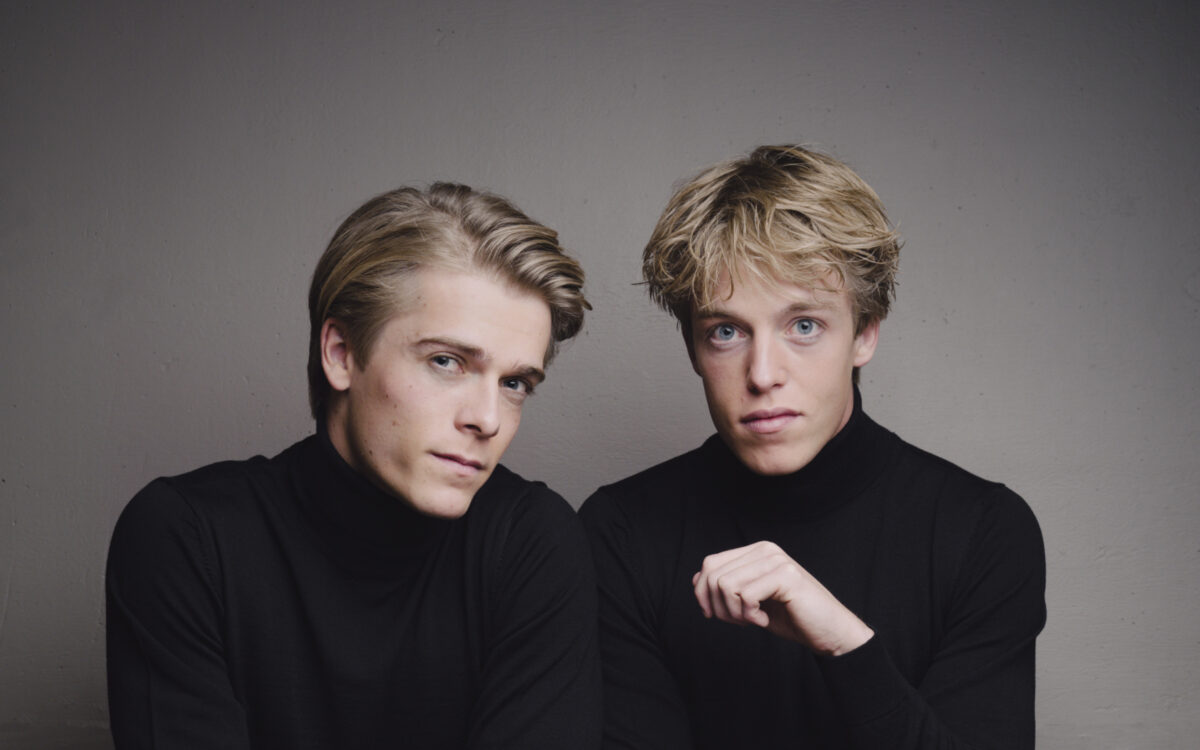Phoenix (Anka Kuşu), for piano four-hands and orchestra
Composition and premiere: Fazil Say wrote the concerto for Lucas and Arthur Jussen in 2020-2021 on a commission from the Munich Philharmonic, Amsterdam Sinfonietta, Mozarteum Orchester Salzburg, and the Boston Symphony Orchestra, Andris Nelsons, Music Director, with support from the New Works Fund established by the Massachusetts Cultural Council, a state agency. Lucas and Arthur Jussen were the soloists in the premiere given by the Munich Philharmonic under John Storgårds’ direction in Munich’s Isarphilharmonie on January 14 (the composer’s birthday), 2022. Today’s performance is the American premiere; this is the first performance by the Boston Symphony Orchestra of music by Fazil Say.
Born in Ankara, Turkey, Fazil Say studied piano as a child with pianist and composer Mithat Fenmen, who encouraged him to improvise in addition to more formal exercises. An encounter as a teenager with the German composer Aribert Reimann led to studies with David Levine at the Musikhochschule Robert Schumann in Düsseldorf, Germany, and in Berlin. He also worked with pianist Menahem Pressler. Say went on to win the Concert Artists International competition in New York City in 1994. His repertoire as a pianist encompasses music from the 18th century to the present, including his own compositions. His recordings include music of Bach, Mozart, Beethoven, Chopin, Debussy, Satie, Stravinsky, and Gershwin, as well as albums of his own works for piano. He collaborates frequently with orchestras and in chamber music combinations; partners include violinists Patricia Kopatchinskaja and Maxim Vengerov, the Minetti Quartet, cellist Nicolas Altstaedt, and mezzo-soprano Marianne Crebassa. This year he released his album Portreler, Op. 101, in collaboration with Turkish flutist Bülent Evcil.
As both pianist and composer, Say has been artist-in-residence with Kozerthaus Dortmund, Kozerthaus Berlin, hr-Sinfonieorchester Frankfurt, Rheingau Musick Festival, Bodenseefestival, and many others. Commissions for his compositions include those from the Salzburg Festival, Konzerthaus Wien, Dresden Philharmonic, the BBC, and the Orpheus Chamber Orchestra.
Say lived in New York City for several years but is now based in Istanbul. Politically outspoken about human rights conditions in his native Turkey, Say was convicted in Istanbul of blasphemy against Islam in 2013 for quoting lines attributed to the poet Omar Khayyam via Twitter. His sentence was suspended contingent upon his committing no further offences for two years. In 2016 he was awarded the International Beethoven Prize for Human Rights, Peace, Freedom, Poverty Reduction, and Inclusion. He considers himself a liaison between Turkish and Western cultures, writing music with Turkish influences to perform in the West and bringing Western music to Turkey.
Fazil Say’s music combines sophisticated and elegant compositional techniques for piano with melodic and rhythmic elements from his Turkish heritage along with influences from jazz—a cheeky case in point being his early Alla Turca Jazz, which reconfigures Mozart’s Rondo “alla Turca” from his A major piano sonata, K.331. In 2016 Say wrote Night, a by turns mysterious and brilliant, wide-ranging, imaginative 10-minute encore piece for piano four-hands for Lucas and Arthur Jussen. The brothers programmed the piece for a concert in Turkey, but officials prohibited its performance due to Say’s problematic political stances. The Jussens instead performed it, unannounced, as an encore.
Rhythmically challenging, Night calls for playing inside the strings of the piano to extend the instrument’s timbral range and adding an unexpected sonic element. This is in keeping with the composer’s lifelong exploration of improvisation and of the music of his own Turkish heritage. These elements are revisited in his new three-movement four-hands concerto for the Jussen brothers, Anka kuşu. The title translates as “phoenix,” the legendary bird that, consumed in flames, rises from its own ashes—a metaphor, if ever there were one, for Say’s constant renewal of his music language via mutually revitalizing interactions of Turkish, Western classical, and jazz music.
CHRISTINE MÖLLER (translated from the program of the Munich Philharmonic premiere; used by permission)/ROBERT KIRZINGER


